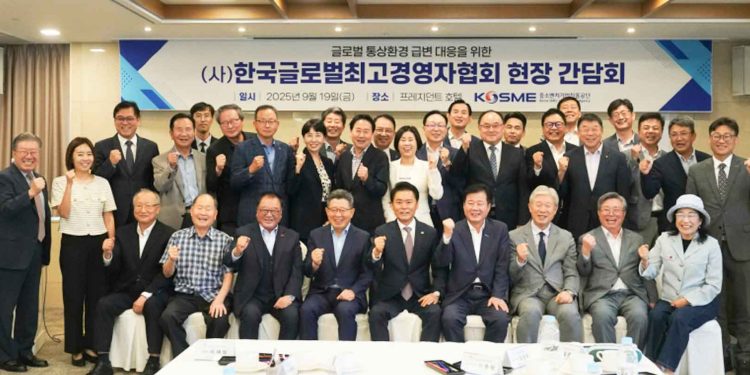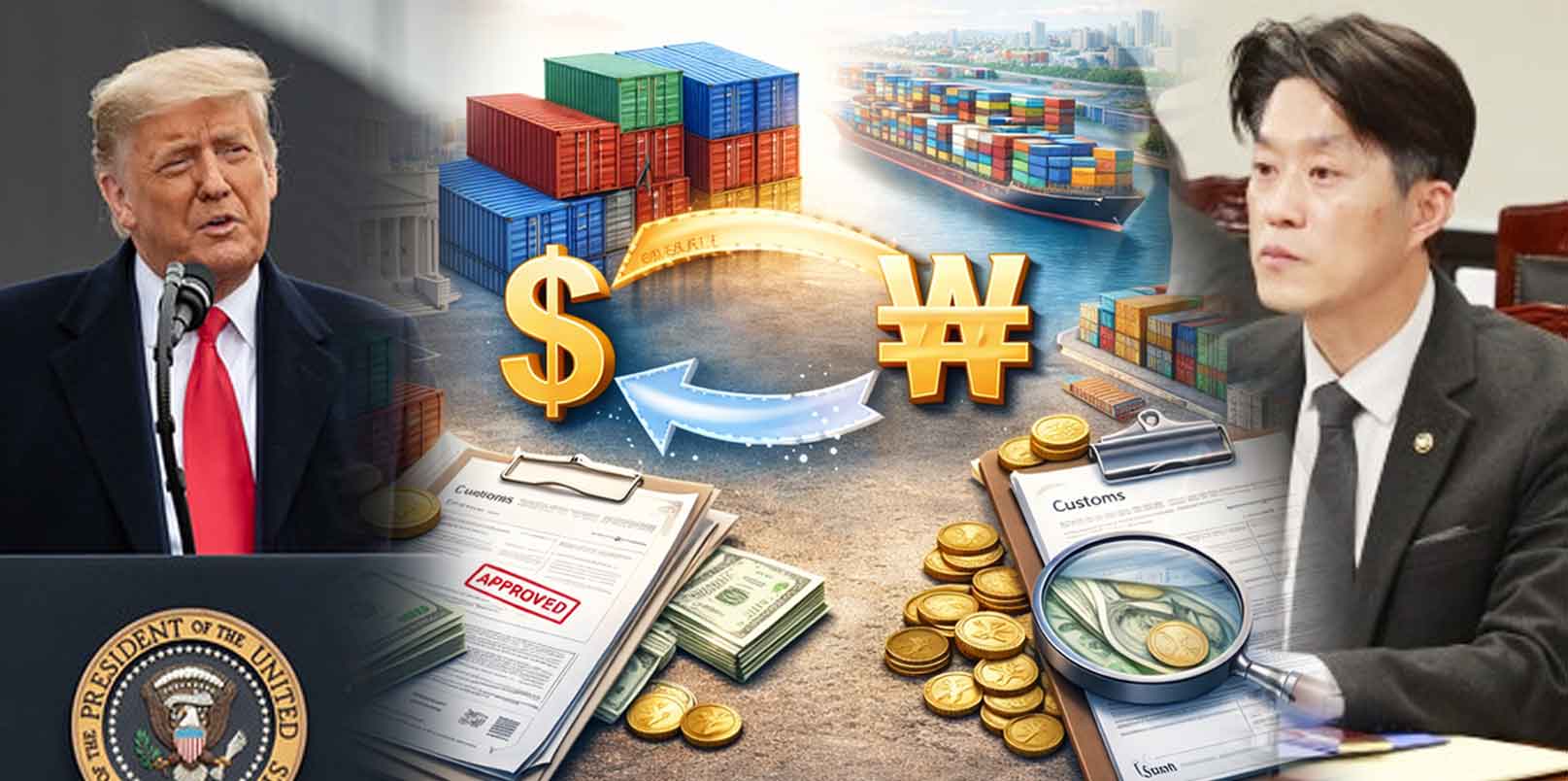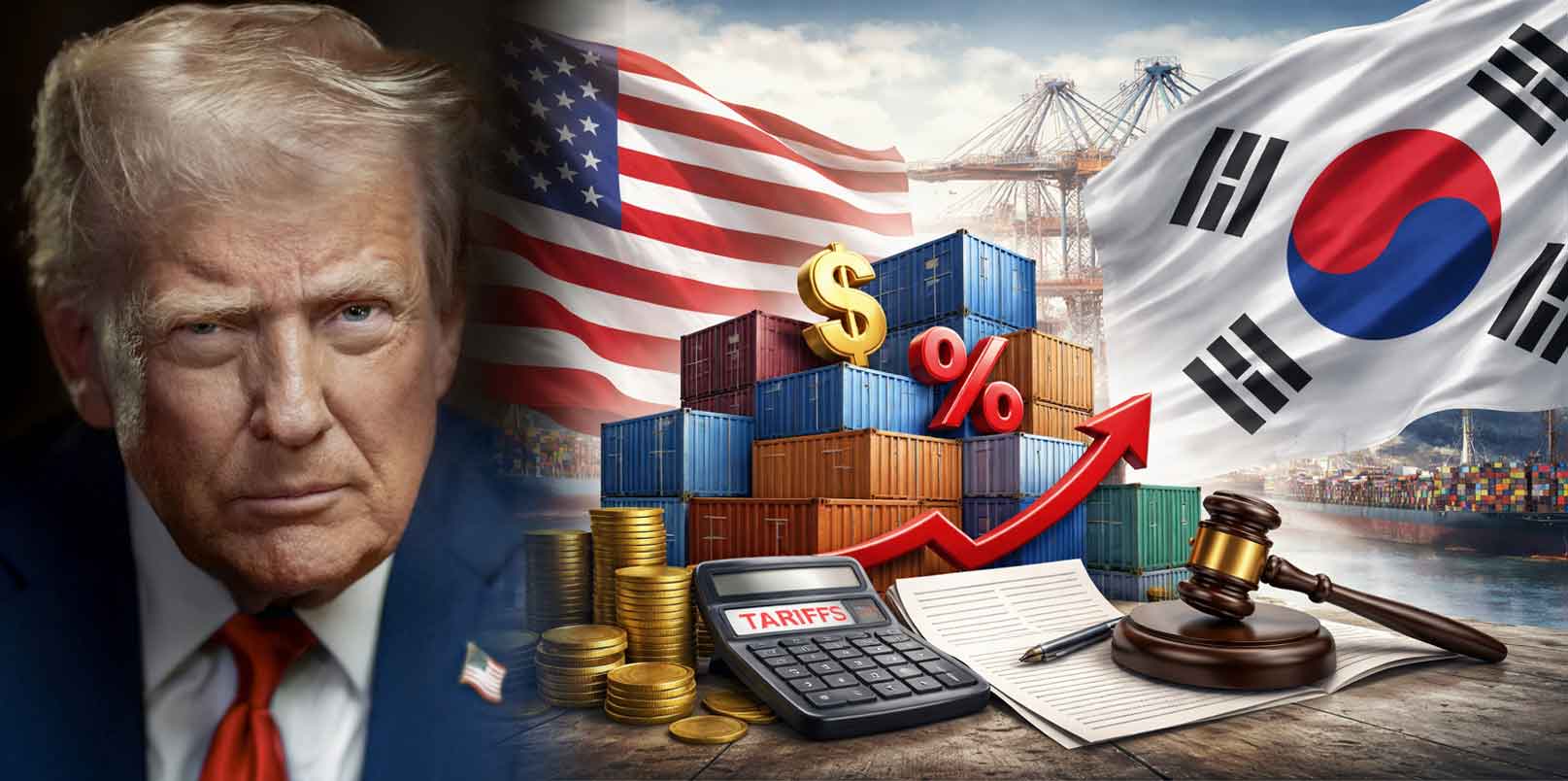South Korea’s small and medium-sized exporters are feeling the brunt of U.S. reciprocal tariffs and expanded duties on steel and aluminum products. Just a month after the measures took effect, dozens of export-driven firms gathered in Seoul to warn of weakened competitiveness, disrupted client relationships, and rising financial strain. The discussion highlights not only immediate financial strains but also deeper questions about how Korean SME export landscape can remain competitive in an increasingly protectionist world.
U.S. Tariffs Push Korea’s SME Export into Crisis Mode
On September 19, the Korea SMEs and Startups Agency (KOSME) hosted an on-site roundtable with members of the KCMC (Korean CEO’s Association of Multinational Corporations) at the President Hotel in Seoul.
The session brought together over 30 executives from export-focused small and mid-sized firms, alongside KOSME Chairman Kang Seok-jin and Association Chairman Seo Dong-man.
The meeting was timed roughly a month after the United States implemented reciprocal tariffs and broadened duties on steel, aluminum, and related derivatives. Its purpose was to capture the immediate challenges facing exporters and identify practical pathways for relief.
Korean Exporters Mounting Pressures from U.S. Tariffs
The introduction of U.S. tariffs has compounded existing pressures for Korean SMEs, which already operate in highly competitive global markets.
Executives reported:
- Sales losses due to weakened price competitiveness in the U.S. market.
- Difficulty determining whether specific items fall under new tariff categories.
- Heightened client instability caused by price renegotiations and shifting order volumes.
The convergence of these issues underscores how quickly trade policy shifts can ripple through export-dependent manufacturing sectors.
Industry Leaders Call for Stronger Relief
Executives urged policy interventions to reduce operational burdens, including logistics cost relief and expanded export financing.
Seo Dong-man, Chairman of the Korea Global CEO Association, emphasized:
“As a representative body for manufacturing exporters, our association will work closely with government and related institutions to design joint responses. We are committed to pooling resources to overcome this crisis.”
KOSME Chairman Kang Seok-jin responded with a pledge to reflect on-the-ground feedback in government support programs:
“KOSME will strengthen practical support by addressing logistics and financial difficulties and encouraging market diversification. We expect export firms to cooperate actively with national policy so that we can navigate this crisis together.”
What It Means for Korea’s Startup and SME Ecosystem
The rising concerns on the effect of U.S. tariffs on Korea’s SME export landscape go beyond short-term trade friction.
Korean SME exporters form a critical part of the nation’s broader startup and venture ecosystem, supplying parts, technologies, and innovations that underpin growth. If U.S. tariffs erode competitiveness or destabilize supply chains, the impact could extend into Korea’s innovation pipeline and its ability to scale globally.
Indeed, other economies in Asia-Pacific are also grappling with shifting U.S. trade measures. However, Korea’s dependence on export-driven SMEs makes the risks more acute.
That is why it doubles the challenge for policymakers: they must shield existing exporters while ensuring that future high-growth firms can enter and thrive in global markets without similar vulnerabilities.
Systemic Long-Term Solutions Urgently Needed for Korea’s SME Export Landscape
This KOSME’s roundtable highlighted both the resilience and fragility of Korea’s export SMEs. While firms remain committed to competing abroad, structural vulnerabilities require systemic solutions, including logistics bottlenecks and financing gaps.
And so, this episode becomes a careful reminder for Korea’s startup and SME ecosystem. After all, global expansion strategies cannot rely solely on government support or single-market dependence. Building resilience will mean diversifying export destinations, aligning trade policy with industry realities, and reinforcing financing mechanisms that allow smaller firms to absorb shocks.
If left unaddressed, today’s tariff-driven struggles risk weakening one of Korea’s most important engines of global growth.
🤝 Looking to connect with verified Korean companies building globally?
Explore curated company profiles and request direct introductions through beSUCCESS Connect.
– Stay Ahead in Korea’s Startup Scene –
Get real-time insights, funding updates, and policy shifts shaping Korea’s innovation ecosystem.
➡️ Follow KoreaTechDesk on LinkedIn, X (Twitter), Threads, Bluesky, Telegram, Facebook, and WhatsApp Channel.






